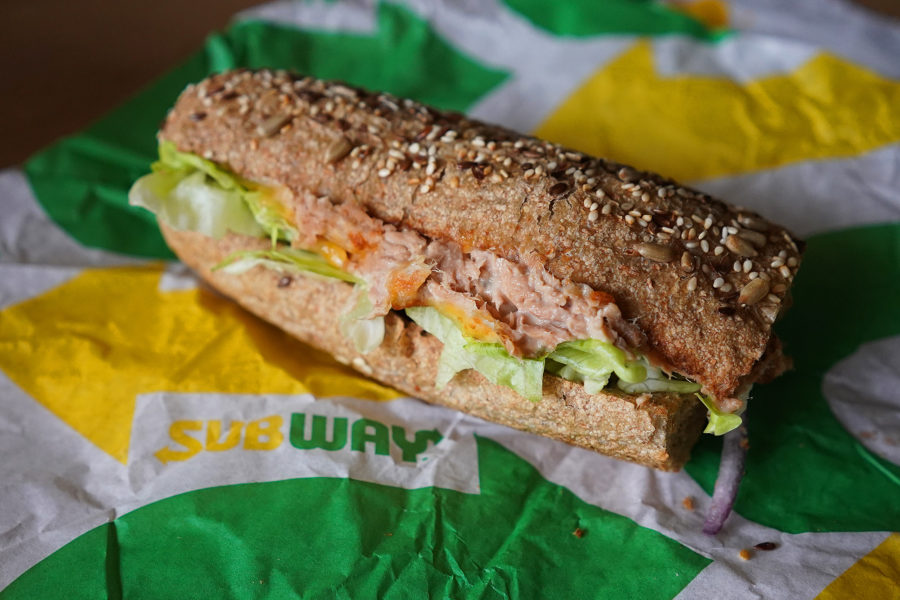Commercial lab tests reportedly find no identifiable tuna DNA in Subway’s tuna sandwich — again.
The following written content by Will Feuer
Something is fishy about Subway’s “tuna” sandwich.
Commercial lab tests again found no identifiable tuna DNA in the sandwich that purports to contain the fish.

The New York Times bought Subway tuna sandwiches from three different locations in Los Angeles, and then sent frozen samples to an unidentified commercial food testing lab after two California women filed a class-action lawsuit against the company in January alleging that Subway’s tuna sandwiches aren’t actually made of the fish.
The women ordered tuna from the sandwich giant at locations near their home, but “independent testing has repeatedly affirmed, the products are made from anything but tuna,” the suit said.
The lab the Times used to test the tuna most recently declined to be identified for fear of losing any opportunities to work directly with Subway, the country’s largest sandwich chain, the outlet reported.
The newspaper said it paid about $500 for the lab, which specializes in fish testing, to conduct a polymerase chain reaction, or PCR, test to see if the substance had any of five different tuna species. PCR tests rapidly replicate huge amounts of a specific DNA sample.
More than a month after the samples were submitted, the lab results read, “No amplifiable tuna DNA was present in the sample and so we obtained no amplification products from the DNA.”
“Therefore, we cannot identify the species,” the results said, according to the Times.
Subway spokeswoman Lorri Christou told The Post that the Times’ report “indicates that DNA testing is an unreliable methodology for identifying processed tuna.”
“DNA testing is simply not a reliable way to identify denatured proteins, like Subway’s tuna, which was cooked before it was tested,” the spokesperson added.
But a spokesman for the lab that the Times used said there are two possible conclusions from the results.
“One, it’s so heavily processed that whatever we could pull out, we couldn’t make an identification. Or we got some and there’s just nothing there that’s tuna,” he told the Times.
But Christou insisted that the testing “does not show that there is not tuna in Subway’s tuna. All it says is that the testing could not confirm tuna, which is what one would expect from a DNA test of denatured proteins.” Read more from New York Post.





